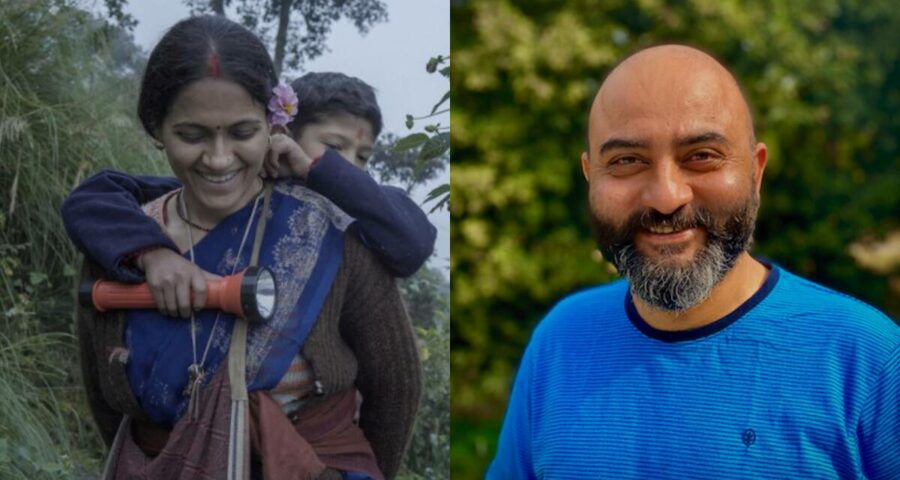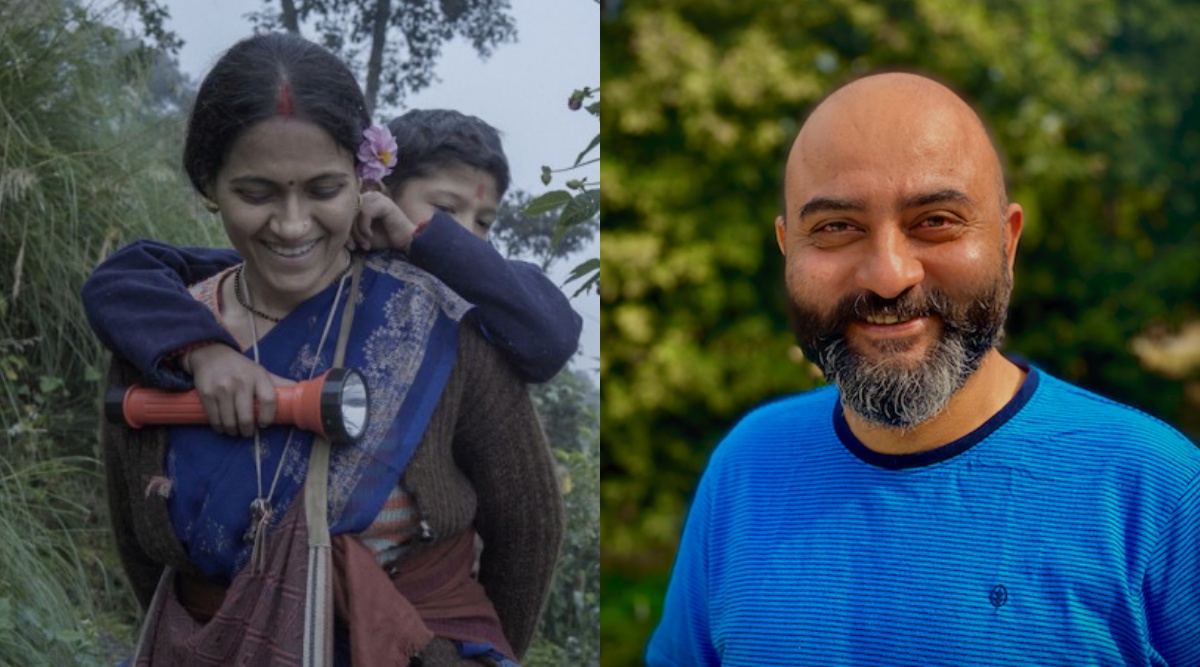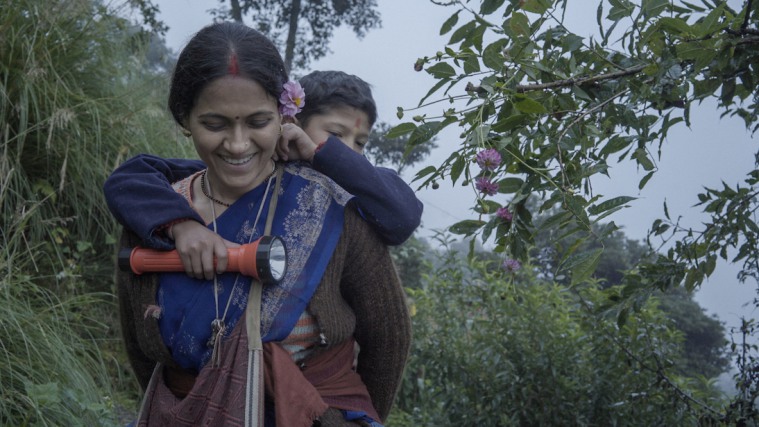Writer-director Ajitpal Singh, 44, on his debut feature Fire In The Mountains winning accolades, struggling through his growing up years, and how the reality of the pandemic has made his recent scripts outdated
During his growing up years, writer-director Ajitpal Singh was not enamoured with cinema. Instead, it’s the coffee machine at cinema halls that fascinated him. He loved watching how froth gushed out of it. However, by the time he graduated from St Xavier’s College, Ahmedabad, with a degree in industrial chemistry, he had already developed a strong desire to tell stories. This desire, initially triggered by his theatre experience as he wrote and directed five plays during his college days, became stronger as his exposure to the world of cinema grew.
“After I graduated, I joined a multimedia course. I worked as a game designer and also made corporate films. Yet, the thrill of creating something from scratch, while working on those plays, stayed with me,” says Singh who in 2002 joined Natarani — Mallika Sarabai’s theatre group — to learn more about stagecraft and acting.
A few years later, after his brush with world cinema, especially Francois Truffaut’s The 400 Blows (1959), he found himself gravitating towards movies. Singh broke down what he needed to know to become a filmmaker. The self-taught director devoted time to photography, editing, and experimented with the short film format. “All this seemed haphazard but I had a plan. My parents, however, were worried about me all the time,” recounts the 44-year-old.
In 2010, Singh decided to step away from everything and focus on writing. Things looked up for him when his screenplay, Man who Broke the Mountain, was selected for Sundance Screenwriters Lab 2012 where it won a grant. “Naively, I thought I had arrived,” recalls Singh with a laugh. Though that script was never made into a movie, the appreciation it received emboldened him to shift to Mumbai in 2013 to build a career in movies. It would take him another seven years — during which he took up several freelance assignments, wrote multiple scripts and made two award-winning short films, titled Hummingbird (2017) and Rammat-Gammat (2018) — before he would be able to make his directorial feature debut with Fire in the Mountains.
The impetus to write Fire in the Mountains, the story of a mother’s struggle to save money for her son’s treatment while her alcoholic husband believes in appeasing the family deity instead, came from questioning the social circumstances that led to the demise of his cousin sister in 2018. Singh’s cousin, who was suffering from typhoid, was denied medical attention by her in-laws because of their superstitious beliefs. “I had several questions: how could this happen in 21st century India. One question led to another. Would my sister have made a different choice than what was made for her? This led to the question: What’s the place of a woman in our society? Writing was my way of finding answers to these questions and understanding life,” says the writer-director. Fire in the Mountains had its world premiere at Sundance Film Festival 2021. Last week, the 82-minute movie won the Audience Award for Best Feature at the 19th annual Indian Film Festival of Los Angeles and its next screening is scheduled as the closing film for New York Indian Film Festival.
The script of Fire in the Mountains started taking shape when Ajay G Rai, who founded Mumbai-based JAR Pictures with Alan McAlex in 2011, wanted to develop a feature film with Singh. His only condition was that Rai that the film should be shot in Uttarakhand so that they would be able to control the budget.
Singh, who was born in Punjab and grew up in Ahmedabad, spent five months in Uttarakhand researching and then writing the script. The process was then followed by looking for the perfect location with mountains as the backdrop before they zeroed in on Munsiyari, which offers a breathtaking view of the Himalayan peaks. “Even though the story of Fire in the Mountains was inspired by different locations of the state, Munsiyari seemed to have all those elements I had in mind — with the inaccessible road to villages, beautiful view and proximity to wildlife,” says Singh, who was associate director on Shanker Raman-directed Gurgaon (2017) and wrote dialogue for Once Again (2018).
The cast of Fire in the Mountains is a mix of non-actors and trained actors. “I am aware that my stories are melodramatic. So I like actors who can show restraint. They make the scenes much more real. Delhi-based Vinamrata Rai, who had acted in Hummingbird, came in as Chandra. Chandan Bisht, who essays the role of Chandra’s husband, is from Uttarakhand. That made it easier for him to understand the character,” says Singh. In spite of the movie’s strong feminist tone, Chandra is flawed. While Chandra is trying hard to educate her son and give him medical attention, she is not as concerned when it comes to her daughter. “Chandra has biases that she is not aware of,” says Singh.
During the pandemic, the director has gone through an unexpected roller-coaster ride. While his debut feature film is currently doing the festival round, Rammat-Gammat is streaming on MUBI. Meanwhile, Singh has been directing a web series, a family drama with elements of thriller, that’s likely to be released on SonyLIV later this year. “It is a strange coincidence that I have been busier during the last couple of years than I have ever been in my entire work life,” says Singh. There was, however, a personal setback. When the pre-production for the web show was underway, he was diagnosed with thyroid cancer and underwent surgery. Soon after his recovery, he rushed back to the untitled show’s sets in Punjab.
Singh is not new to life not working out as planned. His family moved from Kadiyal village in Punjab’s Moga district to Bhatinda in 1983 after his father, a farmer, and ex-army man, sold their land. “He wanted to educate his children but our village didn’t have a school. He leased a cinema hall in Bhatinda,” Singh recalls. The following year, he invested a hefty amount of nearly Rs 60,000 to secure the rights to screen the Amitabh Bachchan-starrer Sharaabi (1984). After Operation Blue Star in June 1984, a curfew was imposed in Bhatinda and they could never recover that money. “With whatever money was left with us, the family started a sweet shop. When Indira Gandhi was killed, the curfew was reimposed,” recalls Singh.
As the family struggled to survive, his father left for Gujarat to find work. “For nine months, we didn’t hear from him as he could not find a job. Finally, he got a job as a security guard and brought us to Ahmedabad in 1986,” Singh says. Life was not easy for the Singhs in Ahmedabad and they encountered strong anti-Sikh sentiments. “We were called terrorists in school. I was isolated and targeted till the Babri Masjid was demolished in 1992. After that I found Hindu friends at school since Muslims were viewed as the others,” he recalls. His father apart from working as a security guard would also make and sell incense sticks. His mother used to knit sweaters.
Even though Singh is happy that in the last year his work has been viewed and appreciated by people, he is unsettled by the horrors of the pandemic and the way it has been handled so far. “The new reality that’s unfolding around us has made my old scripts outdated. Every week, I write something and then read about something bizarre happening around us. Then, I chuck that idea. I will wait for some more time and see how emotionally affected I am by the present crisis. We might not fully realise yet but this is going to shape the next century,” Singh says.
Source: Read Full Article



